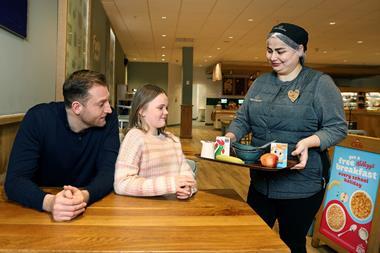Five years of medical research look set to dismiss fears of increasing levels of food allergies among British children.
Scientists at the David Hide Asthma and Allergy Research Centre on the Isle of Wight have found that the incidence of food hypersensitivity (FHS) has remained almost constant for the past 20 years.
The new findings were delivered to the Food Standards Agency at the beginning of this month and are due to be published in a journal next year.
The conclusions will be set out in the last of four reports produced by the team based at St Mary's Hospital, Newport, funded by the FSA and prompted by concerns over apparent steady rises in food hypersensitivity - particularly among children.
Those concerns have led to a general consensus that increases in FHS are an established fact.
In July, for instance, Ivan Lewis, junior health minister, told the House of Commons: "Studies suggest that the prevalence of food allergy in the UK may be increasing, especially in children, in line with the general increase in allergic diseases."
Now, however, Carina Venter, the report's main author, and her colleagues look certain to challenge those widespread assumptions. Their main finding was that over three years the incidence in a sample of 969 children was about 6%.
That was in line with earlier studies of children taken in 1989 and 1996 - and almost exactly the same as the results of a milestone report by Dr Alan Bock in the US in 1987.
Commissioned in 2001, the Isle of Wight team recruited a 'birth cohort' of children, who were monitored with regards to allergic reactions until they were three years old.
The results were then compared with data collected from a similar sample born in 1989.
The team also examined food allergies among six, 11 and 15-year-olds to see whether prevalence had changed at different ages during childhood.
















No comments yet